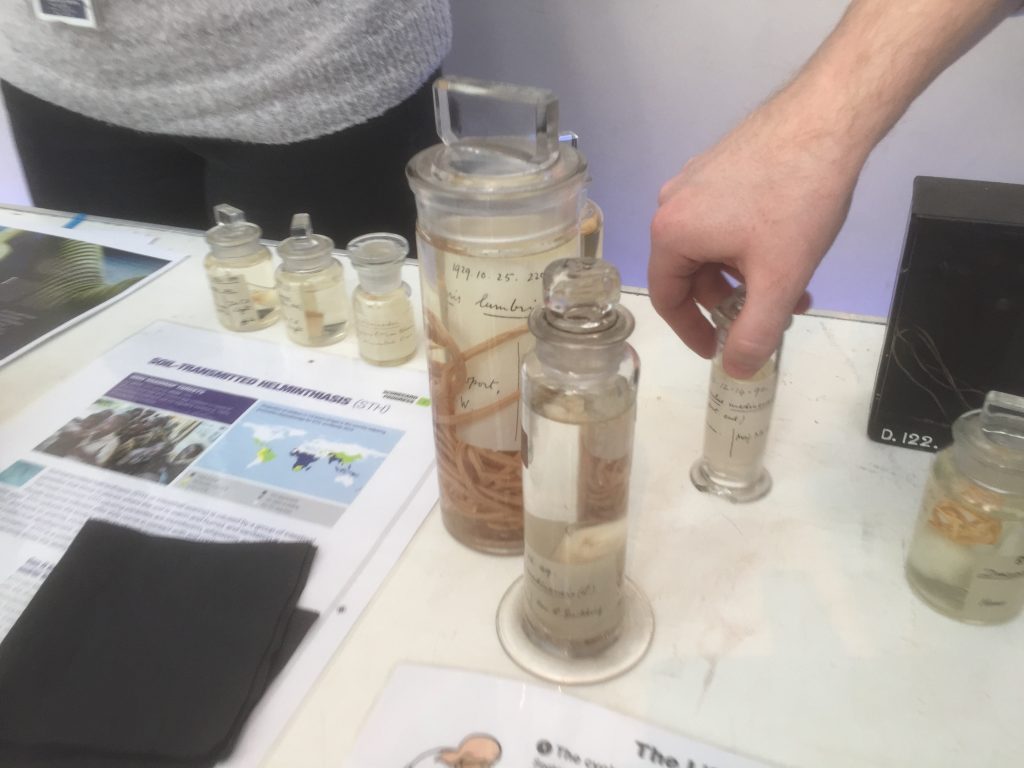Not the review journal Trends in Parasitology, but a look at how often the term ‘parasitology’ has been typed into the Google search engine since 2004. Note that the trends are represented in relative terms – no absoloute numbers are available.
Ready? Here are the data…..
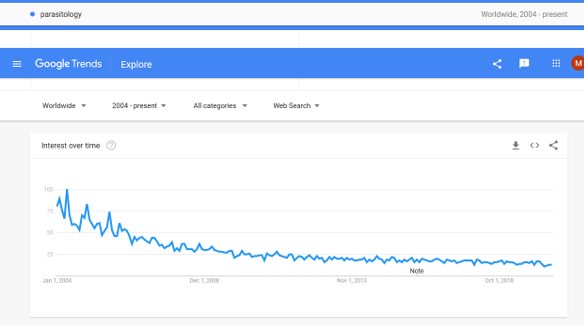
So yeah, it all peaked sometime before 2004 and there has been a slow decline ever since. Is parasitology dissappearing as a keyword or a subject?
Let’s look at where people are typing ‘parasitology’ into Google for some futher insights…
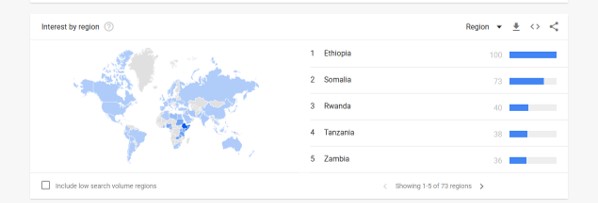
Ethiopia tops the region of interest, followed by Somalia, Rwanda, Tanzania then Zambia.
In terms of searches by city level…
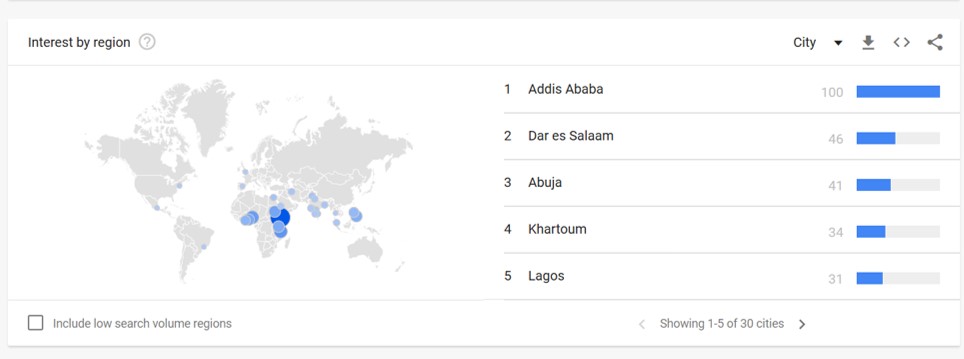
Perhaps not surprisingly, Addis Ababa is at the top of the city interests.
So what about related terms? How about the term ‘Parasite’?

Can you guess the reason for the peak in mid 2019? Think of a certain Oscar-winning film.
Clearly there has been some downturn in the use of the specific term ‘ parasitology’ over the last 15 years. This could reflect a downturn in the number of higher education courses run under that title. The same trend is seen in the UK…
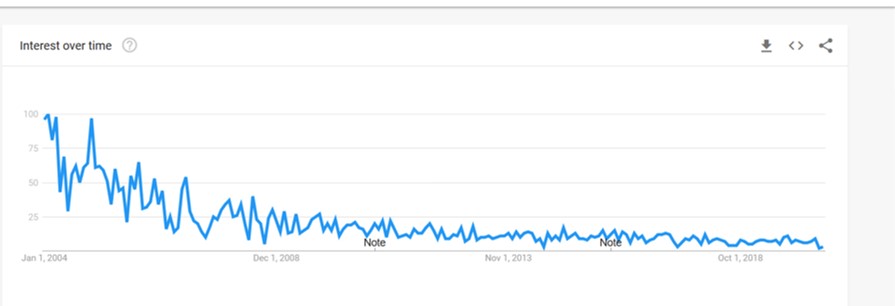
With the most queries coming from just 2 cities

A term that has clearly increased in usage over the same time period is ‘Neglected Tropcial Diseases’. Let’s have a look at the trend…
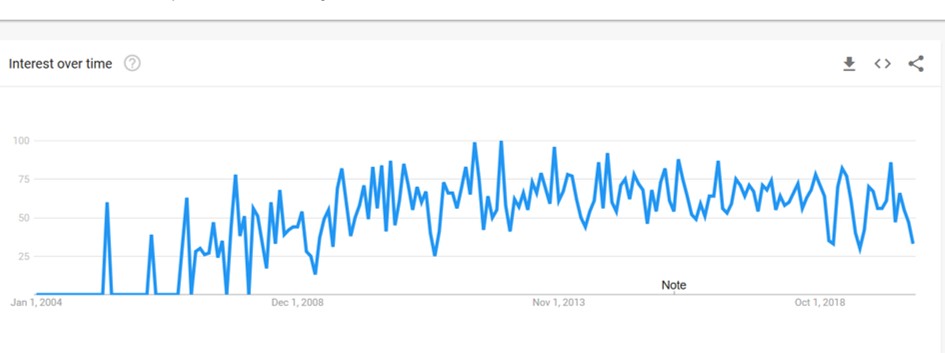
The trend is quite clearly different to Parasitology and suggests that there has been some replacement in terms of keyword search. Of course, there is also likely to be a shift in terms of who is searching. I would suggest that ‘Parasitology’ is likely to be searched by students and researchers. ‘Neglected Tropical Diseases’ is likely to have a more cosmopolitan distribution, as the term is widely used by the charity sector, NGOs and the public. In my own facebook group Tropical Epidemiology and Ecology I use the term ‘Neglected Tropical Diseases’ as an umbrella term to attract wider participation.
What about regions and cities? Here are the relative numbers for both….
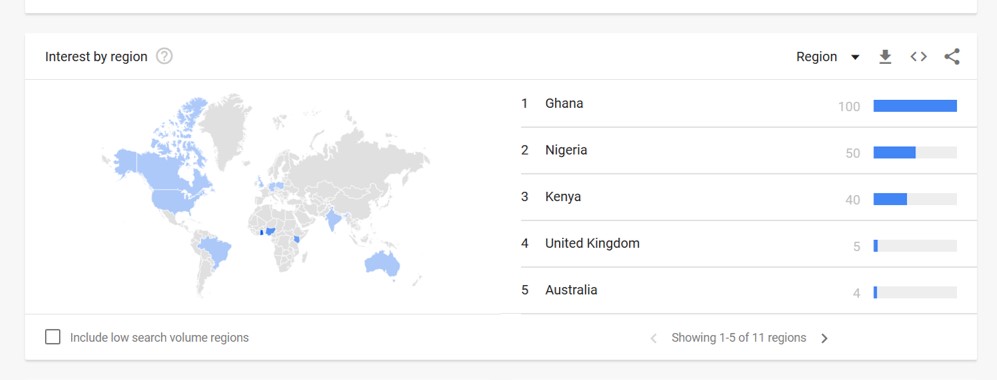
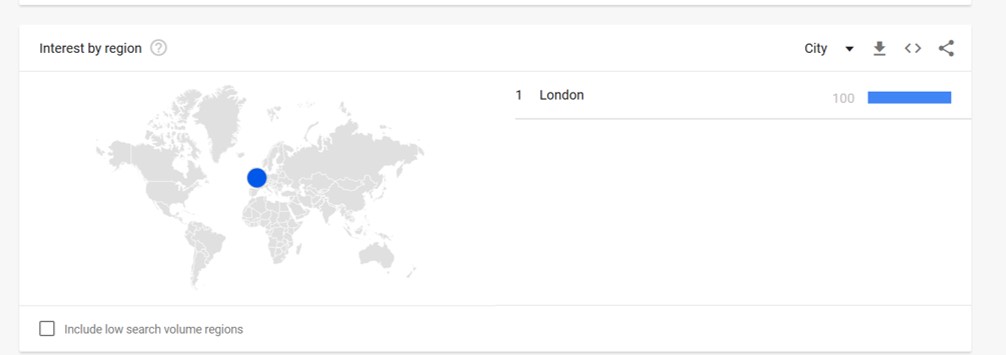
Here we see the dominance of London. The way the data are represented suggests that the term Neglected Tropical Diseases is relatively popular term in Ghana but the overall nuumber of searches is too low related to the interest shown in London. The dominance of London as the origin of searches is possibly due to the concentration of researchers, NGOs and academic courses.
It may be worth also noting that the trends above are people typing the term into the Google search engine. Other search engines are available, including Facebook where there are several parasitology groups and pages that are active.
I’m not overly concerned by the downturn in the term ‘parasitology’ so long as the interest in parasites (under another collective term) is maintained. Whilst every effort is being made to eradicate parasites affecting humans and animals of economic importance, the same is not true of wildlife populations. Continued interest in the parasites of animals can provide transferable information to help understand how to mitigate or adapt anthropogenic influences on the transmission of parasites affecting humans. An article that considers this issue in some detail is available here

